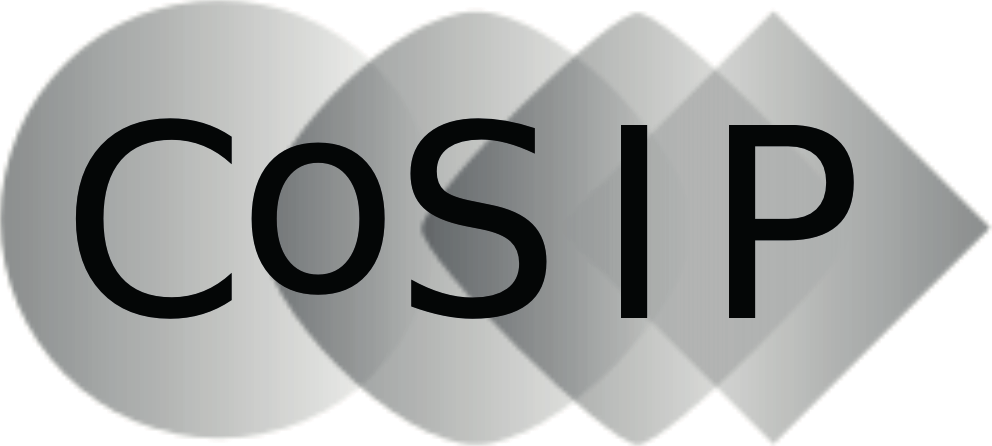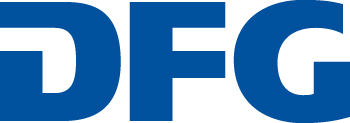Security in the context of future communication challenges and compressive sensing
Sicherheit für die Kommunikation der Zukunft und compressed sensing
- Professor Dr. Jens Eisert
Freie Universität Berlin
Dahlem Center for Complex Quantum Systems
- Privatdozent Dr.-Ing. Gerhard Wunder
Technische Universität Berlin
Heinrich-Hertz-Lehrstuhl für Informationstheorie und theoretische Informationstechnik
Zusammenfassung
Dieses Vorhaben schlägt einen konzertierten Forschungsplan vor, um wichtige Herausforderungen bei der Entwicklung zukünftiger Kommunikationstechnologien mit neuen Lösungen zu meistern. Zentrales Anliegen ist es, Sicherheitskonzepte auf physikalischer Basis auszuloten, sowohl im Mobilfunk als auch in der Quantenkommunikation, die prinzipiell abhörsichere Kommunikation verspricht. Grundlage des Ansatzes sind Methoden des Compressed Sensing als gemeinsamer "Hammer", die hier angewendet und weiterentwickelt werden.
Sehr im Einklang mit dem vom Schwerpunktprogramm 1798 gesetzten Rahmen über "Compressed Sensing in der Informationsverarbeitung" bringt das Vorhaben signifikante Expertise aus der Elektrotechnik und Mobilfunkkommunikation, Quanteninformation und der angewandten Mathematik zusammen; beide Antragsteller haben einen signifikanten Forschungshintergrund in der Signalverarbeitung und im Compressed Sensing. Wir führen neue Ideen der Dekonvolution unter neuen Annahmen der Inkohärenz und Begrifflichkeiten der Komprimierbarkeit ein, wie auch deren nicht-kommutative Analoga, die im Quantenkontext natürlich auftauchen, und wenden sie auf praktische Probleme der Informationsverarbeitung an.
Summary
The present proposal suggests a concerted effort to tackle and resolve key challenges in the development of communication technologies - examining physical layers of security in future mobile phone and quantum technologies, which offer the perspective of unconditionally secure communication. It exploits and further develops methods of compressed sensing as the main "hammer" to be used.
Very much in line with the mindset of the SPP 1798 on "Compressed Sensing in Information Processing", the proposal brings together significant expertise from electrical engineering and mobile phone communication, quantum information science, and applied mathematics, with both principal investigators having a significant track record in research on modern signal processing and specifically compressed sensing. Formally, it will introduce novel ideas of deconvolution under new conditions of incoherence and notions of compressibility, as well as non-commutative analogs that naturally arise in the quantum setting, and apply them to the practical problems of information processing at hand.
Preprints
Alexandra Carpentier, Jens Eisert, David Gross, Richard Nickl, Uncertainty quantification for matrix compressed sensing and quantum tomography problems, April 2015
Martin Kliesch, Richard Kueng, Jens Eisert, David Gross, Improving compressed sensing with the diamond norm, November 2015
Experimental quantum compressed sensing for a seven-qubit system, August 2016
Gerhard Wunder, Peter Jung, Mohammed Ramadan, Compressive Random Access Using A Common Overloaded Control Channel, September 2016,
V. Abrol et al., Proceedings of the third "international Traveling Workshop on Interactions between Sparse models and Technology" (iTWIST'16), September 2016
Ingo Roth, Martin Kliesch, Gerhard Wunder, Jens Eisert, Reliable recovery of hierarchically sparse signals and application in machine-type communications, Dec. 2016
Rick Fritschek, Gerhard Wunder, On the Deterministic Sum-Capacity of the Multiple Access Wiretap Channel, January 2017
Martin Kliesch, Richard Kueng, Jens Eisert, David Gross, Guaranteed recovery of quantum processes from few measurements, January 2017
Publications
G Haack, A Steffens, J Eisert and R Hübener, Continuous matrix product state tomography of quantum transport experiments New J. Phys. 17, 113024 (2015)
G. Wunder, C. Stefanovic, P. Popovski, Compressive Coded Random Access for Massive MTC Traffic in 5G Systems, 49th Annual Asilomar Conf. on Signals, Systems, Pacific Grove, USA, November 2015, (invited paper)
G. Wunder, P. Jung and M. Ramadan, Compressive Random Access Using A Common Overloaded Control Channel, Global Communications Conference (GLOBECOM’15), December 2015
R. Fritschek and G. Wunder, Towards a Constant-Gap Sum-Capacity Result for the Gaussian Wiretap Channel with a Helper, International Symposium on Information theory (ISIT 2016), Barcelona, July 2016
Roth, Ingo, Martin Kliesch, Gerhard Wunder, and Jens Eisert. Reliable Recovery of Hierarchically Sparse Signals, In Proceedings of the Third “International Traveling Workshop on Interactions between Sparse Models and Technology” (iTWIST’16), 36–38. Aalborg, 24th-26th of August 2016.
Gerhard Wunder, Holger Boche, Thomas Strohmer, Peter Jung, Sparse Signal Processing Concepts for Efficient 5G System Design, IEEE Access January 2015,
Ingo Roth, Martin Kliesch, Gerhard Wunder, and Jens Eisert, Reliable recovery of hierarchically sparse signals, Proc. 3rd “International Traveling Workshop on Interactions between Sparse Models and Technology” (iTWIST’16), 36–38. Aalborg, August 2016
Martin Kliesch, Richard Kueng, Jens Eisert, David Gross, Improving compressed sensing with the diamond norm, IEEE Trans. Inf. Th. 62, 7445 December 2016
A. Steffens, C. Riofrio, W. McCutcheon, I. Roth, B. A. Bell, A. McMillan, M. S. Tame, J. G. Rarity, J. Eisert, Experimentally exploring compressed sensing quantum tomography, Quantum Sci. Technol. 2, 025005, February 2017
A. Steffens, P. Rebentrost, I. Marvian, J. Eisert, S. Lloyd, An efficient quantum algorithm for spectral estimation, New J. Phys. 19, 033005, March 2017
Rick Fritschek, Gerhard Wunder, On-the-fly Secure Key Generation with Deterministic Models, ICC May 2017,
Mahdi Barzegar, Saeid Haghighatshoar, Giuseppe Caire, Gerhard Wunder, Compressive Estimation of a Stochastic Process with Unknown Autocorrelation Function, ISIT, June 2017
C. A. Riofrio, D. Gross, S. T. Flammia, T. Monz, D. Nigg, R. Blatt, J. Eisert, Experimental quantum compressed sensing for a seven-qubit system, Nature Comm. 8, 15305 (2017), August 2017
Gerhard Wunder, Ingo Roth, Rick Fritschek, Jens Eisert, HiHTP: A Custom-Tailored Hierarchical Sparse Detector for Massive MTC, Asilomar 2017, October 29th - November 1st, 2017

